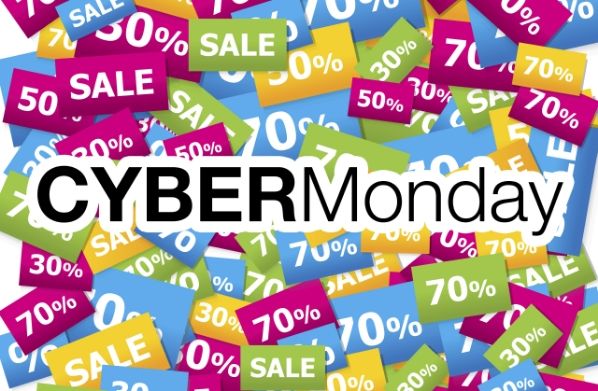Cyber Monday Raises Internet Sales Tax Issue
It’s Cyber Monday! Many Americans will be scanning retail websites for the best deals while at their desks or on their smartphones. There are many deals to be had and one of the biggest benefits is that many online retailers don’t charge taxes. That benefit to consumers may come to an end if some retailers and lawmakers get their wish.
No sales tax is a competitive advantage for online retailers of knit goods on Etsy just as it is for those selling their “previously loved” items on eBay compared to brick-and-mortar stores which are seen by consumers on a daily basis and have the benefit of permanency and trust just by being a part of the community.
The internet sales tax, or the Marketplace Fairness Act, is a scheme to expand state tax collection and enforcement powers across the internet. Currently, many online retailers do not charge taxes. There is a patchwork of agreements and regulations between states but federal legislation passed by the Senate and just down by House leadership, would work to set the rules for all to follow. Taxpayers are supposed to report and pay the uncollected sales tax from their online purchases when they file state income taxes, but many fail to do so. In Massachusetts for example, taxes are charged only if there is a distributor or warehouse in the state. The state stands to gain $200 million annually if internet companies had to collect the 6.25 percent sales tax for online sales.
A war is being waged here in Washington with fiscal conservatives –especially younger ones who are more likely to be online shoppers – lining up against liberals who’ve never met a tax they didn’t like.
A coalition of 13,000 small online retailers explains in The Hill:
Proponents claim that the misnamed Marketplace Fairness Act enjoys meaningful bipartisan support. But on closer examination, both that claim and the bill's chances evaporate. First, in Congress, the real support is overwhelmingly Democratic. Second, among actual voters, the only thing bipartisan is strong opposition. Finally, not only do most Republicans in Congress, as well as Republican voters, oppose the idea of expanding state tax collection and enforcement powers across the Internet, but the conservative "movement" opposes the idea viscerally. They see it as the very definition of expanding government power.
…
Beyond the pure numbers, the Republican vote in the Senate also exposed a clear generational division on the Internet economy and the role of government in the Internet Age. The median age of the Republican senators opposing the sales tax bill was 54, while the median age in favor was 62. There were 11 Republican senators under the age of 55 who voted "no," while just one voted "yes." Lastly, every Republican senator under the age of 50 voted "no." Future conservative leaders in the GOP clearly are not looking for more regulation, taxation and government power on the Internet.
Remember, too, that the Senate Democratic leadership bypassed the committee process in order to cover up flaws with the bill and also to smartly corner the Republicans into a divisive up-or-down vote pitting giant retailers against conservative activists.
…
Even more telling is what voters think. The supposedly bipartisan Senate Internet sales tax bill, after months of intense pro-tax lobbying, media cheering and supposed momentum, has fallen flat with actual people. A June 2013 Gallup poll indicated bipartisan opposition, 57 to 39 percent, among voters. Opposition of those under age 50 exceeded 60 percent, while those under 30 opposed by over 70 percent! Polls showed Republicans and independents both lined up solidly against. A stinker.
The public doesn’t support more taxes, the problem is many of our representatives on Capitol Hill and even in state houses don’t agree. Governors and legislators just see the lost revenue. Members of Congress feel the pressure from a host of lobbyists and donors that don’t feel it’s fair to pay taxes when their competitors don’t.
Last year, consumers spent $1.7 billion during Cyber Monday. We must ask, if internet sales taxes were introduced would Americans still shop online at the same pace? Furthermore, if they didn’t would that spending just shift to brick-and-mortar stores or would that shopping not occur at all? It’s unlikely that all online shoppers would stop shopping entirely, but some of that spending might disappear entirely.
This is a case where government should not be in the business of picking winners and losers. Tax-free shopping is an advantage but so is being in the community of shoppers every day. As small bookstores have learned, the experience of thumbing through pages or scanning shelves to discover a new item contributes to sales. They have an advantage that online retailers don’t have.
At the end of the day, price and other attributes contribute to the purchasing decisions of Americans. Let the best products and retailers win. The consumer –not the federal government- should be the arbiter of this battle.


